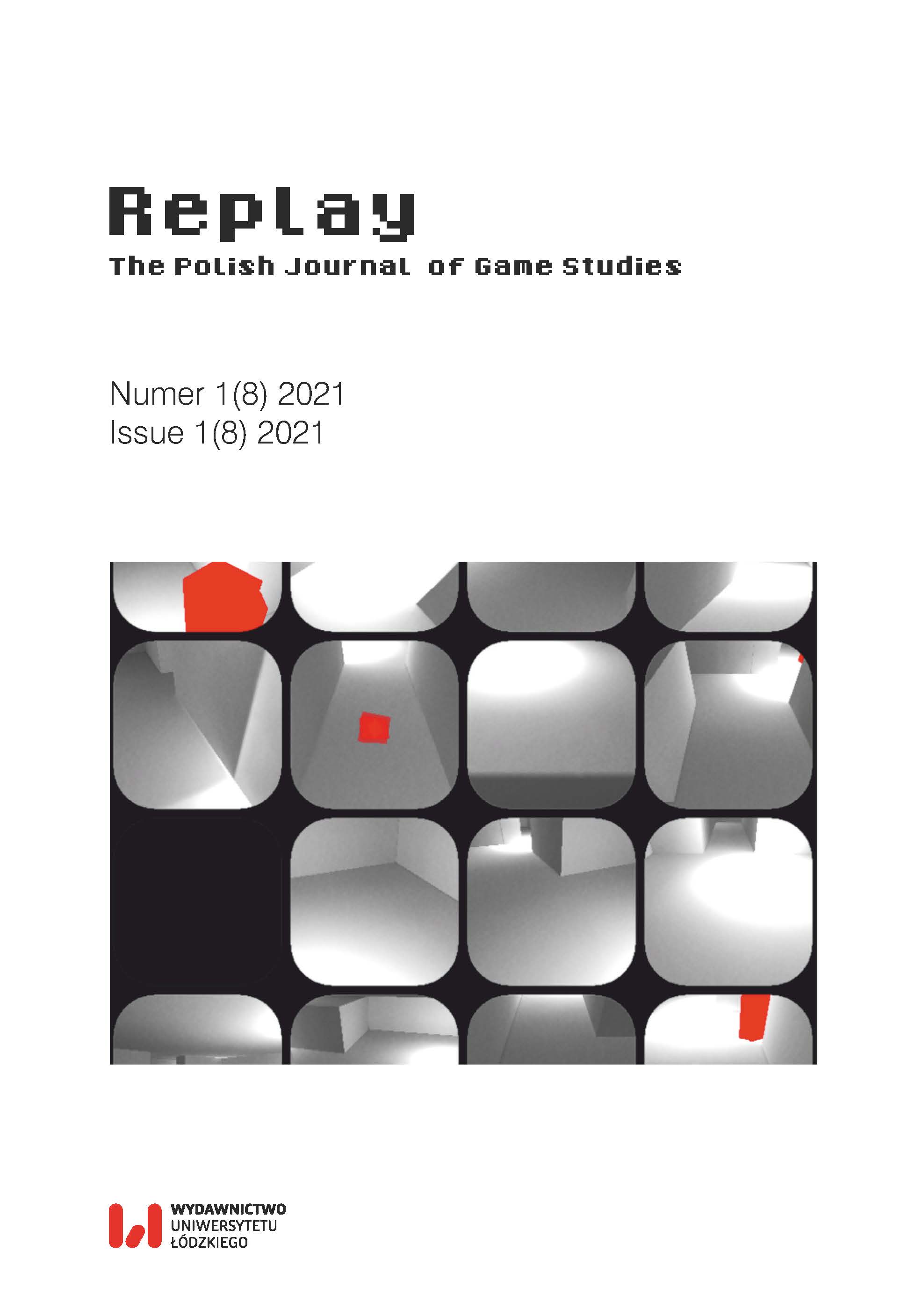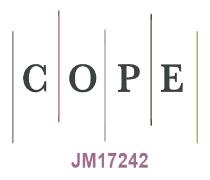16-bit dissensus: post-retro aesthetics, hauntology, and the emergency in video games
DOI:
https://doi.org/10.18778/2391-8551.08.01Keywords:
Pixel graphics, post-retro, aesthetics, hauntology, dissensus, Dys4ia, UndertaleAbstract
Santiago Zabala reveals a crisis in modern society that perceives a world dominated by oppressive neoliberal ideology as acceptable and unproblematic. He claims that today’s greatest emergency is that we fail to notice other emergencies in society. To break out of this state, we need an aesthetic force to shock individuals into a new awareness. Unfortunately, while many social and global issues have recently come to widespread attention, the emergency still prevails in many forms of media. For example, the emergency in AAA video games appears in their continual push for higher resolution graphics, hyper-detail, verisimilitude, and intricate gameplay, perpetuating a hegemonic ideology. Exploitative labor practices, lack of representation beyond hetero-sexual, cis-gendered and neurotypical, and capitalist ideals are perpetuated in popular games in service of a hyper-real, high-fidelity aesthetic. One force that combats this emergency is pixel graphics and simplified gameplay, or post-retro aesthetics. While tied to the past, these aesthetics are not nostalgic but transgressively hauntological. To explore this claim, I discuss Dys4ia and Undertale as key post-retro games and reach beyond commercial indie gaming to point to hauntological work being done through DIY game making platformers such as Bitsy.
References
Anthropy, A. (2012). Rise of the Videogame Zinesters: How Freaks, Normals, Amateurs, Artists, Dreamers, Drop-outs, Queers, Housewives, and People Like You Are Taking Back an Art.
Google Scholar
Barnewall, C. (December 1, 2021). Toby Fox Dominated Some Spotify Wrapped Lists Thanks To ‘Undertale’ And ‘Deltarune Chapter 2’. Uproxx. https://uproxx.com/edge/toby-fox-spotify-wrapped-undertale/ (accessed on April 16, 2022).
Google Scholar
Clarke, M.J., & Wang, C. (2020). Indie Games in the Digital Age [Kindle Edition]. Bloomsbury Publishing USA. https://doi.org/10.5040/9781501356421
Google Scholar
DOI: https://doi.org/10.5040/9781501356421
Conditt, J. (August 5, 2021). Inside the sexual harassment lawsuit at Activision Bliz- zard. Endgadget. https://www.engadget.com/activision-blizzard-lawsuit-discri-mination-abuse-video-163056567.html (accessed on April 16, 2022).
Google Scholar
Consalvo, M. (2009). There is No Magic Circle. Games and Culture, 4(4), 408–417. https://doi.org/10.1177/1555412009343575
Google Scholar
DOI: https://doi.org/10.1177/1555412009343575
D’Anastasio, C. (May 15, 2015). Why Video Games Can’t Teach You Empathy. VICE. https://www.vice.com/en/article/mgbwpv/empathy-games-dont-exist (accessed on April 16, 2022).
Google Scholar
Davis, C. (2005). Hauntology, spectres and phantoms. French Studies, 59(3), 373–379. https://doi.org/10.1093/fs/kni143
Google Scholar
DOI: https://doi.org/10.1093/fs/kni143
Entertainment with ActionScript (1st Edition). APress. https://doi.org/10.1007/978-1-4302-2615-4
Google Scholar
DOI: https://doi.org/10.1007/978-1-4302-2615-4
Fisher, M. (2009). Capitalist Realism: Is There No Alternative? Zero Books.
Google Scholar
Fisher, M. (2012). What Is Hauntology? Film Quarterly, 66(1), 16–24. https://doi.org/10.1525/fq.2012.66.1.16
Google Scholar
DOI: https://doi.org/10.1525/fq.2012.66.1.16
Fisher, M. (2014). Ghosts of My Life: Writings on Depression, Hauntology and Lost Futures. John Hunt Publishing.
Google Scholar
Frank, A. (December 16, 2015). Undertale wins GameFAQs’ Best Game Ever contest. Retrieved December 10, 2018, from Polygon website: https://www.polygon.com/2015/12/16/10323192/undertale-gamefaqs-best-game-ever
Google Scholar
Fulton, J., & Fulton, S. (2010). The Essential Guide to Flash Games: Building Interactive.
Google Scholar
DOI: https://doi.org/10.1007/978-1-4302-2615-4
Harvey, A., & Fisher, S. (2013). Making a Name in Games. Information, Communication & Society, 16(3), 362–380. https://doi.org/10.1080/1369118X.2012.756048
Google Scholar
DOI: https://doi.org/10.1080/1369118X.2012.756048
Heidegger, M. (2002a). Origin of the Work of Art. In J. Young & K. Haynes (Trans.), Off the Beaten Track (1 edition, pp. 1–56). Cambridge, New York: Cambridge University Press.
Google Scholar
Heidegger, M. (2002b). The Age of the World Picture. In J. Young & K. Haynes (Trans.), Off the Beaten Track (1 edition, pp. 56–85). Cambridge, New York: Cambridge University Press.
Google Scholar
Jørgensen, K., & Karlsen, F. (2019). Introduction: Playful Transgressions. In K. Jørgensen & F. Karlsen (Eds.), Transgression in Games and Play. MIT Press. https://doi.org/10.7551/mitpress/11550.003.0002
Google Scholar
DOI: https://doi.org/10.7551/mitpress/11550.001.0001
Juliano, L. (2012). Digital: A Love Story; Bully; Grand Theft Auto Iv; Portal; Dys4ia. Theatre Journal; Baltimore, 64(4), 595–598.
Google Scholar
Juul, J. (2019). Handmade Pixels: Independent Video Games and the Quest for Authenticity. Cambridge, MA: The MIT Press.
Google Scholar
Keogh, B. (2015). Between Triple-A, Indie, Casual, and DIY. In K. Oakley & J. O’Connor (Eds.), The Routledge Companion to the Cultural Industries (pp. 152–162). Routledge.
Google Scholar
Lipkin, N. (2012). Examining Indie’s Independence: The Meaning of “Indie” Games, the Politics of Production, and Mainstream Cooptation. Loading..., 7(11). http://journals.sfu.ca/loading/index.php/loading/article/view/122
Google Scholar
Liss-Marino, T. (2014). Sell (It) Yourself: Marketing Pleasure in Digital DIY. Publicly Accessible Penn Dissertations. https://repository.upenn.edu/edissertations/1347
Google Scholar
Lobato, R. (2012). Shadow economies of cinema: Mapping informal film distribution. Palgrave Macmillan on behalf of the British Film Institute.
Google Scholar
Martin, C.B., & Deuze, M. (2009). The Independent Production of Culture: A Digital Games Case Study. Games and Culture, 4(3), 276–295. https://doi.org/10.1177/1555412009339732
Google Scholar
DOI: https://doi.org/10.1177/1555412009339732
Meunier, N. (April 5, 2009). Indie Queue: Meat Boy Gets Supersized. The Escapist. https://www.escapistmagazine.com/indie-queue-meat-boy-gets-supersized/
Google Scholar
Nicoll, B., & Keogh, B. (2019). The Unity Game Engine and the Circuits of Cultural Software (1st edition). Palgrave Pivot. https://doi.org/10.1007/978-3-030-25012-6_1
Google Scholar
DOI: https://doi.org/10.1007/978-3-030-25012-6_1
Paul, C.A. (2018). The Toxic Meritocracy of Video Games (1st edition). Retrieved from https://www.upress.umn.edu/book-division/books/the-toxic-meritocracy-of--video-games; https://doi.org/10.5749/j.ctt2204rbz
Google Scholar
DOI: https://doi.org/10.5749/j.ctt2204rbz
PC Game of the Year 2015. (January 6, 2016). Retrieved December 20, 2019, from IGN website: https://ca.ign.com/wikis/best-of-2015/PC_Game_of_the_Year
Google Scholar
Pötzsch, H. (2019). Forms and Practices of Transgressivity in Videogames: Aesthe- tics, Play, and Politics. In K. Jørgensen & F. Karlsen (Eds.), Transgression in Games and Play. MIT Press.
Google Scholar
Rancière, J. (2011). The Emancipated Spectator (Reprint edition). London: Verso. https://doi.org/10.5040/9781474249966
Google Scholar
DOI: https://doi.org/10.5040/9781474249966
Rancière, J. (2015). Dissensus: On Politics and Aesthetics (1 edition; S. Corcoran, Trans.). Bloomsbury Academic.
Google Scholar
DOI: https://doi.org/10.5040/9781474249966
Richter, J. (November 23, 2021). Undertale Set Creator Toby Fox Up for Success. Game Rant. https://gamerant.com/undertale-creator-toby-fox-success-deltarune-nintendo-pokemon-smash-bros/ (accessed on April 16, 2022).
Google Scholar
Rodriguez, B. (November 25, 2021). Undertale’s Most Interesting Fan-Made Characters. Screen Rant. https://screenrant.com/undertale-fan-art-characters-best-cute-monsters/ (accessed on April 16, 2022).
Google Scholar
Ruberg, B. (2018). Straightwashing Undertale: Video games and the limits of LGBTQ representation. Journal of Transformative Works and Cultures, 28. Retrieved from https://journal.transformativeworks.org/index.php/twc/article/view/1516/1866; https://doi.org/10.3983/twc.2018.1516
Google Scholar
DOI: https://doi.org/10.3983/twc.2018.1516
Salter, A., & Murray, J. (2014). Flash: Building the interactive web. MIT Press. https://doi.org/10.7551/mitpress/9833.001.0001
Google Scholar
DOI: https://doi.org/10.7551/mitpress/9833.001.0001
Seraphine, F. (2017). The Rhetoric of Undertale: Ludonarrative Dissonance and Symbolism. Proceedings of the Digital Game Research Association Japan Annual Conference. Presented at the 8th DiGRA conference, Japan. Retrieved from https://www.researchgate.net/profile/Frederic_Seraphine/publication/323545890_The_Rhetoric_of_Undertale-Ludonarrative_Dissonance_and_Symbolism/links/5a9bdb8545851586a2acea7d/The-Rhetoric-of-Undertale-Ludonarrative-Dissonance-and-Symbolism.pdf
Google Scholar
Souppouris, A. (May 6, 2012). Play this: ‘Dys4ia’. The Verge. https://www.theverge.com/2012/5/6/3003067/dys4ia (accessed on April 16, 2022).
Google Scholar
Süngü, E. (2020). Gender Representation and Diversity in Contemporary Video Games. In B. Bostan (Ed.), Game User Experience and Player-Centered Design (pp. 379–393). Springer International Publishing AG. https://doi.org/10.1007/978-3-030-37643-7_17
Google Scholar
DOI: https://doi.org/10.1007/978-3-030-37643-7_17
Vanderhoef, J. (2016). An Industry of Indies: The New Cultural Economy of Digital Game Production [Dissertation, University of California]. https://www.alexandria.ucsb.edu/lib/ark:/48907/f3t43t7t
Google Scholar
Vattimo, G. (2010). Art’s Claim to Truth (S. Zabala, Ed.; L. D’Isanto, Trans.). New York: Columbia University Press.
Google Scholar
Young, C.J. (2018). Game Changers: Everyday Gamemakers and the Development of the Video Game Industry [Thesis]. https://tspace.library.utoronto.ca/handle/1807/89734
Google Scholar
Zabala, S. (2017). Why Only Art Can Save Us: Aesthetics and the Absence of Emergency. Columbia University Press. https://doi.org/10.7312/zaba18348
Google Scholar
DOI: https://doi.org/10.7312/zaba18348
Anthropy, A. (2012). Dys4ia [Adobe Flash]. Newgrounds.
Google Scholar
AshG (2019). My Face [browser-based]. Itch.io.
Google Scholar
Askiisoft (2019). Katana Zero [multi-platform]. Devolver Digital.
Google Scholar
Atari, Inc. (1976). Breakout [multi-platform]. Atari, Inc.
Google Scholar
Atari, Inc. (1980). Adventure [Atari]. Atari, Inc.
Google Scholar
Bizarre Creations (2003). Geometry Wars [Xbox]. Microsoft Game Studios.
Google Scholar
Choice Provisions Inc., formerly Gaijin Games (2009). Bit.Trip Beat [multi-platform]. Various publishers.
Google Scholar
Chunsoft (1986). Dragon Quest [Nintendo Entertainment System]. Enix.
Google Scholar
Cwcdarling (2021). Starlight Motel [browser-based]. Itch.io.
Google Scholar
EA Tiburon (2020). Madden NFL 21 [multi-platform]. EA Sports.
Google Scholar
EXOK, formerly Maddy Makes Games (2018). Celeste [multi-platform]. EXOK.
Google Scholar
Fox, T. (2015). Undertale [Microsoft Windows, OS X]. Toby Fox.
Google Scholar
Happy Ray Games (2020). Ikenfell [multi-platform]. Humble Games.
Google Scholar
Infinity Ward (2019). Call of Duty: Modern Warfare [multi-platform]. Activision.
Google Scholar
Love Conquers All Games (2021). Get in the Car, Loser! [Microsoft Windows, macOS]. Love Conquers All Games.
Google Scholar
Nintendo EPD (2015). Animal Crossing: New Horizons [Nintendo Switch]. Nintendo.
Google Scholar
Nintendo, Intelligent Systems (2003–). Wario Ware series [multi-platform]. Nintendo.
Google Scholar
Number None (2009). Braid [multi-platform]. Number None, Microsoft Game Studios.
Google Scholar
Pajitnov, A. (1984). Tetris [Electronika 60].
Google Scholar
Polytron Corporation (2013). Fez [Xbox 360]. Trapdoor.
Google Scholar
Richard, C. (2020). Under a Star Called Sun [browser-based]. Itch.io.
Google Scholar
Skeleton Crew Studio (2021). Olija [multi-platform]. Devolver Digital.
Google Scholar
Square (1987). Final Fantasy [Nintendo Entertainment System]. Square.
Google Scholar
Studio Zevere (to be released). She Dreams Elsewhere [multi-platform]. Studio Zevere.
Google Scholar
Sundae Month (2016). Diaries of a Spaceport Janitor [Microsoft Windows]. Tiny-Build.
Google Scholar
Team Meat (2010). Super Meat Boy [Xbox 360]. Team Meat.
Google Scholar
Treyarch, Raven Software (2020). Call of Duty: Black Ops Cold War [multi-platform]. Activision.
Google Scholar
Ubisoft Montreal (2020). Assassin’s Creed: Valhalla [multi-platform]. Ubisoft.
Google Scholar
Downloads
Published
How to Cite
Issue
Section
License

This work is licensed under a Creative Commons Attribution-NonCommercial-NoDerivatives 4.0 International License.










